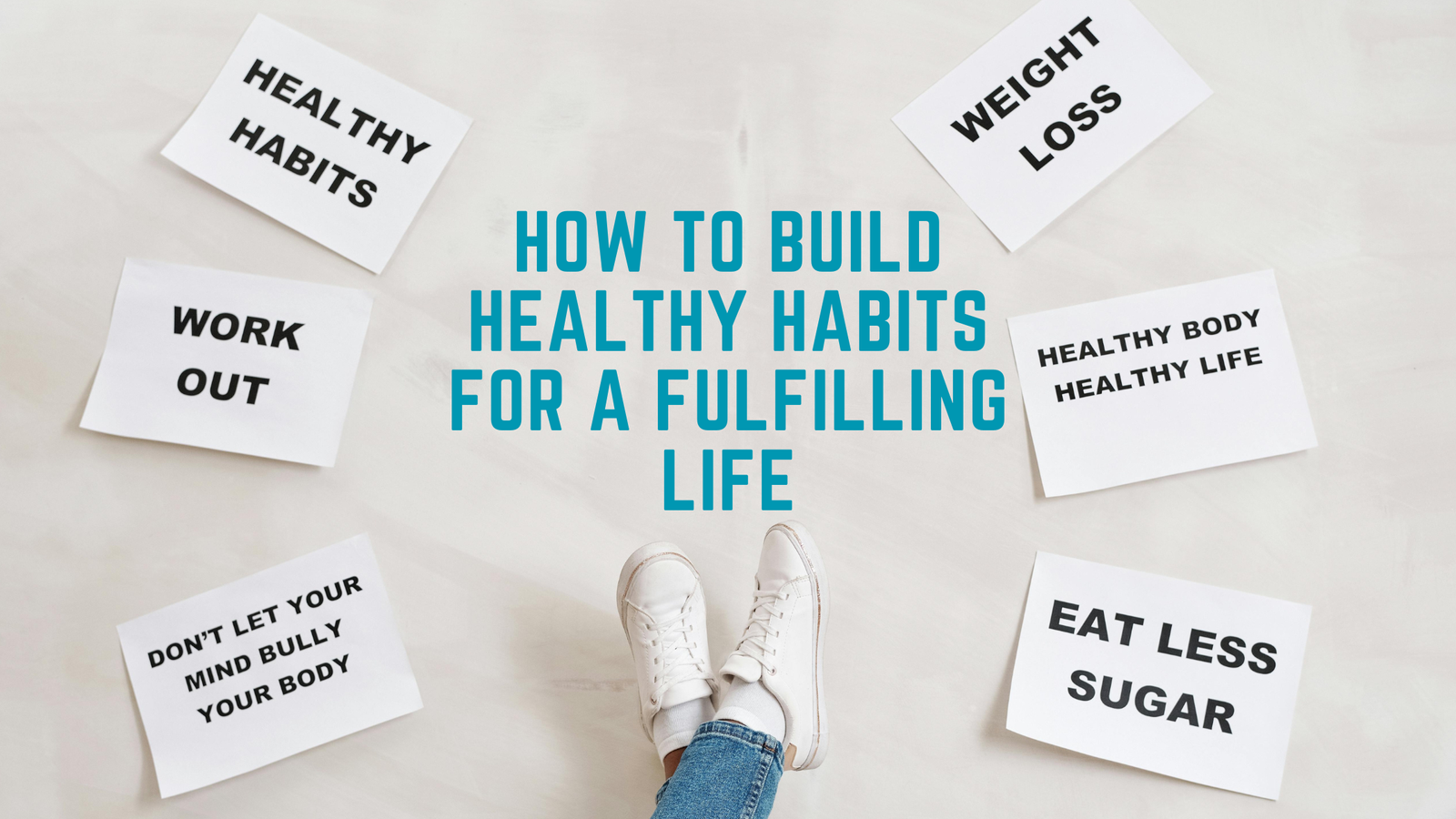In today’s fast-paced world, finding the perfect balance between work, health, and personal life can often feel like navigating through a maze. Building healthy habits is not just about making random lifestyle changes. It’s about creating a fulfilling life that brings joy, wellness, and contentment. In this article, we dive deep into the why and how of crafting such habits that stick.
I. Introduction
A. Understanding the Importance of Healthy Habits
The cornerstone of a fulfilling life lies in the habits we nurture daily. From what we eat to how much we move and even the thoughts we entertain, each aspect significantly impacts our overall well-being.
B. Goal of the Article
Our goal is to guide you through identifying and replacing unhealthy habits with ones that promote vitality and satisfaction, ensuring you live every day to its fullest potential.
II. Recognizing Unhealthy Habits
A. Common Unhealthy Habits
Identifying habits that detract from our well-being is the first step toward change. These can range from excessive screen time to poor dietary choices.
B. The Impact on Daily Life
Understanding the profound impact these habits have on our physical and mental health is crucial for motivating change.
III. The Psychology Behind Habit Formation
A. The Habit Loop
Habits form through a loop process: cue, routine, and reward. Recognizing this loop is pivotal in breaking old habits and forming new ones.
B. The Role of Willpower and Motivation
While willpower is a finite resource, understanding motivation’s role can empower us to make lasting changes.
IV. Building the Foundation for Healthy Habits
A. Setting Realistic Goals
The journey toward a healthy lifestyle begins with setting achievable goals that encourage progression rather than perfection.
B. Importance of Small, Incremental Changes
Emphasizing baby steps ensures that the process of habit formation is less daunting and more sustainable.
V. Key Healthy Habits to Cultivate
A. Nutritional Choices
Incorporating a balanced diet enriches your body with essential nutrients, fostering physical and mental health.
B. Physical Activity
Regular exercise boosts moods, enhances energy levels, and supports overall health.
C. Mental Wellness
Investing in mental health through mindfulness, gratitude, or therapy can significantly improve life quality.
D. Sleep Hygiene
Quality sleep is a cornerstone of good health, impacting everything from mood regulation to cognitive function.
E. Social Connections
Nurturing positive relationships plays a critical role in emotional well-being and longevity.
VI. Tools and Strategies for Habit Formation
A. Habit Tracking
Utilizing habit trackers can offer insights into progress and areas that need adjustment.
B. Accountability Partners
Having someone to share your journey with can increase motivation and the likelihood of success.
C. Reward Systems
Implementing a reward system can reinforce positive behavior and make the process enjoyable.
VII. Overcoming Common Challenges
A. Dealing with Setbacks
Understanding that setbacks are part of the process, and learning from them, is key to resilience.
B. Staying Motivated
Finding deeper reasons for change can help sustain motivation over time.
VIII. The Benefits of a Healthy Lifestyle
A. Physical Benefits
From improved cardiovascular health to stronger immunity, the physical benefits of a healthy lifestyle are extensive.
B. Emotional and Psychological Benefits
A lifestyle centered around healthy habits can lead to reduced stress, enhanced mood, and greater overall happiness.
IX. Incorporating Habits into Your Unique Lifestyle
A. Customizing Habits
Adapting habits to fit personal preferences, routines, and goals is crucial for long-term success.
B. Flexibility and Adaptation
Being open to tweaking and changing habits as life evolves ensures they remain beneficial and sustainable.
X. Conclusion
Building healthy habits is a journey of self-exploration and commitment. The process might be challenging, but the rewards—a fulfilling and vibrant life—are immeasurable. Start small, stay consistent, and remember, every step forward is a step toward a better you.
XI. FAQ
1. How long does it typically take to form a new habit?
It can vary greatly, but research suggests anywhere from 18 to 254 days, with an average of 66 days for a new behavior to become automatic.
2. Can habits really change my life?
Absolutely. Habits, both good and bad, significantly influence your daily life and long-term wellbeing. Positive habits can transform virtually every aspect of your existence.
3. What do I do if I fail to stick to a new habit?
Understand that setbacks are normal. Reflect on what led to the hiccup, adjust your plan accordingly, and try again. Persistence is key.
4. How can I make a habit stick for good?
Consistency, patience, and a supportive environment are crucial. Also, leveraging tools like habit trackers and rewards can reinforce your new habit.
5. Is it better to focus on one habit at a time or to try several?
Starting with one habit allows you to channel your energy and focus, increasing the odds of success. Once a habit is established, you can then consider adding another.










